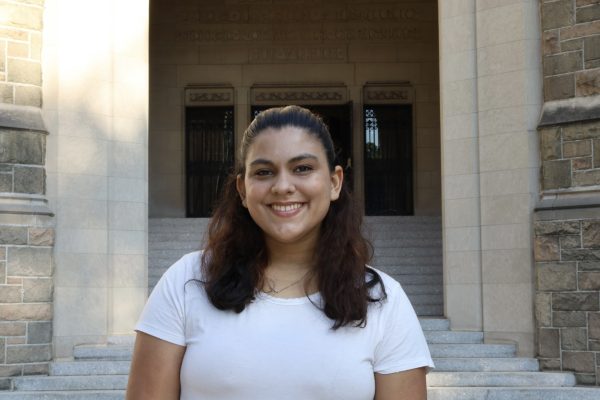
Sigma Xi is a scientific honors society that has a history of over 125 years. According to the Sigma Xi website, it is one of the oldest and largest scientific organizations in the world. It aims to serve both science and society. The organization received its name from its motto, as the Greek letters Sigma and Xi are an acronym for “Spoudon Xynones” meaning “Companions in Zealous Research.”
Fordham University has its own chapter of Sigma Xi on campus which recently accepted applications for new members from invited students. According to their invitation letter, undergraduate and graduate students alike who “demonstrate their engagement in original social science and science research” were encouraged to apply. They note that completing coursework in scientific fields typically does not meet the criteria for Associate Membership.
The Fordham chapter explained membership in Sigma Xi is a significant honor to reflect the achievements and scientific potential of those inducted. Additionally, the members receive a one-year subscription to American Scientist, a well-respected journal.
The application process consists of a concise research statement explaining the original research done, the name and email of one’s research advisor and, if applicable, information regarding whether your research has been presented or published though this is not necessary for nomination. The applications closed on Friday, Feb. 23. Once accepted, new members will have to pay a $70 initiation fee and will be formally inducted into Fordham’s chapter at a ceremony in late March or early April.
Dr. Stephen Holler, secretary of Fordham’s chapter, explained that the research requirement is not restricted to just research done at Fordham. He stated that if a student has been a part of research at another university or through a summer program or job, this can still fulfill the requirements for them to apply and join Fordham’s chapter of Sigma Xi. He explained the main benefits, stating, “it creates a community for researchers to interact and learn about all the research that is ongoing and to receive recognition for their own research endeavors.”
President of Fordham’s Sigma Xi chapter Dr. Martin Sanzari, explained more about the benefits of being a member of Sigma Xi. “Once you become a member, that connects you to members…all over the world,” he explained. Additionally, there are opportunities that students can hear about and be able to apply to through the society. They also receive the Sigma Xi magazine every quarter where they can read about scientific work and advancements done by members throughout the nation.
Through this and other Sigma Xi events, members are able to connect with a larger scientific community outside of just their Fordham professors. Through mutual membership in the same scientific organization, they would have a connection with which to reach these scientists. Finally, he stated that “Sigma Xi has a student research symposium very similar to the one Fordham has except it is nationwide,” which provides students with the opportunity to present their work to a greater audience.
Sanzari further explained that there are no responsibilities past membership once one is inducted, “the only criteria is paying your membership dues,” he laughed. He went on to explain he has been working with Fordham’s chapter of Sigma Xi since he started at the university 27 years ago and that Fordham has had a long history with the organization before that, dating back to around the 1950s.
In fact, one of the first Fordham members of Sigma Xi was Dr. Victor Hess, who had won a Nobel Prize in physics before his time at the university. Sanzari likes to share this with new inductees at the induction ceremony to remind them that they are signing the same book as a Nobel Prize Winner. Fordham usually inducts around 100 to 120 students a year, which typically puts the university at #2 in the country for inductees.
One member of Fordham’s chapter, Maggie DiGiorno, FCRH ’24, is doing research with chemistry professor Dr. Nicholas Sawyer. She stated that she, like many students, heard about the society through the email they sent out inviting students to apply. “It’s not a super spoken-about thing here on campus, and prior to receiving the email, I actually had no idea that it existed,” she explained. However, now that she is a part of the society, DiGiorno stated that her favorite benefits are having access to the discussion boards and the year-long subscription to “American Scientist.”
“I would say to apply!” She encouraged other students, saying, “It is a relatively easy process, and the benefits are great — it looks good on a CV and you get to wear cool cords at graduation. Also, it’s a great opportunity to get recognized for the hard work you put into your research.” Another member, Jan Bieroweic, FCRH ’24, shared similar sentiments encouraging fellow students to apply. She added how it can further your connection with Fordham chapter faculty as well, stating, “I personally would consider Professors [Christopher] Aubin and Holler as connections for life that I can reach out to and something like being a member of Sigma Xi facilitates that.”








































































































































































































